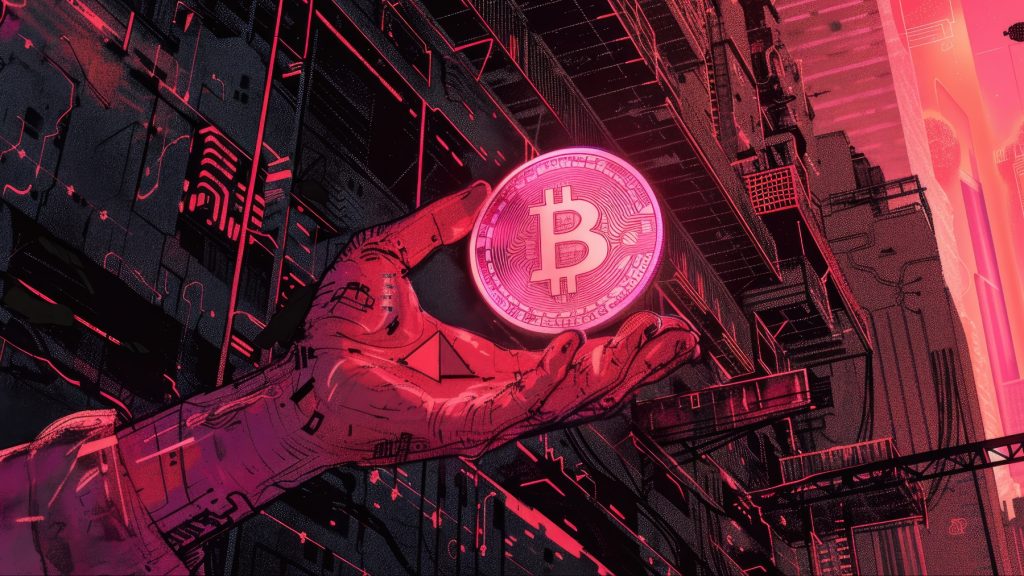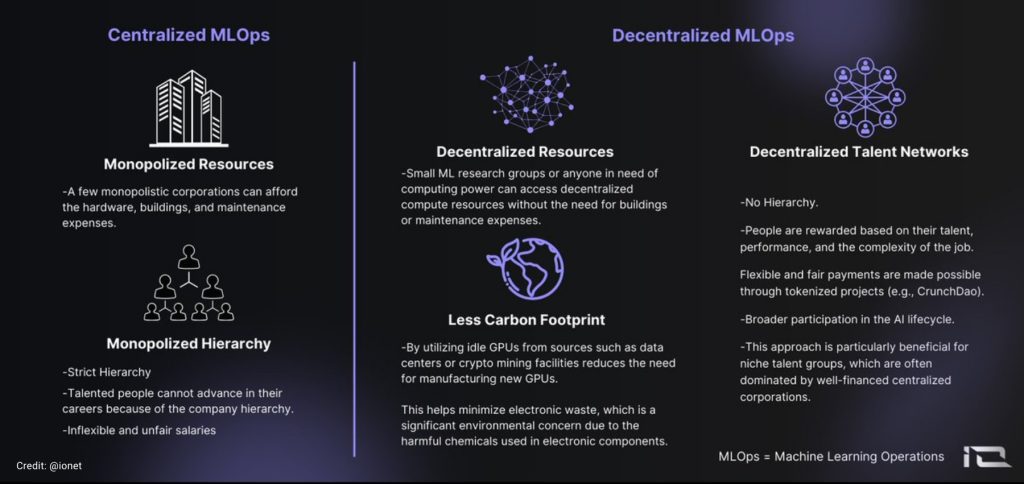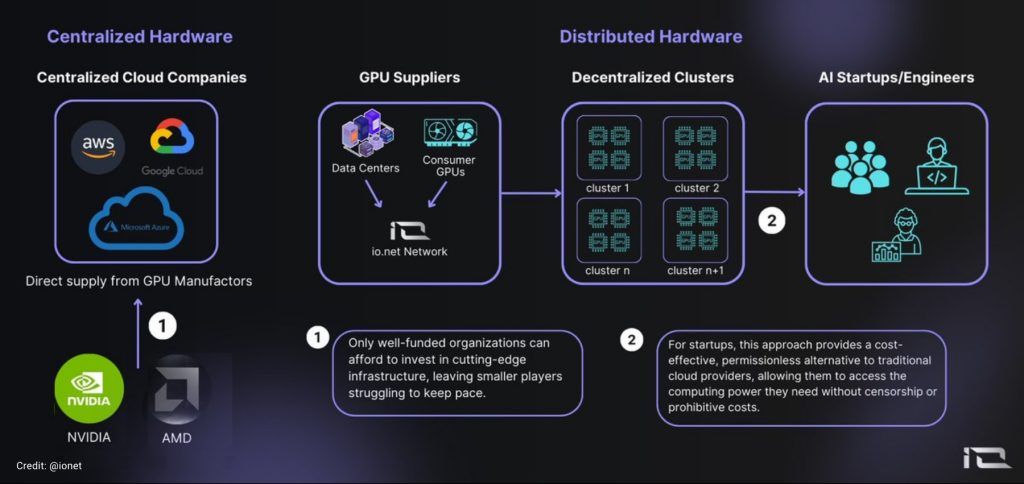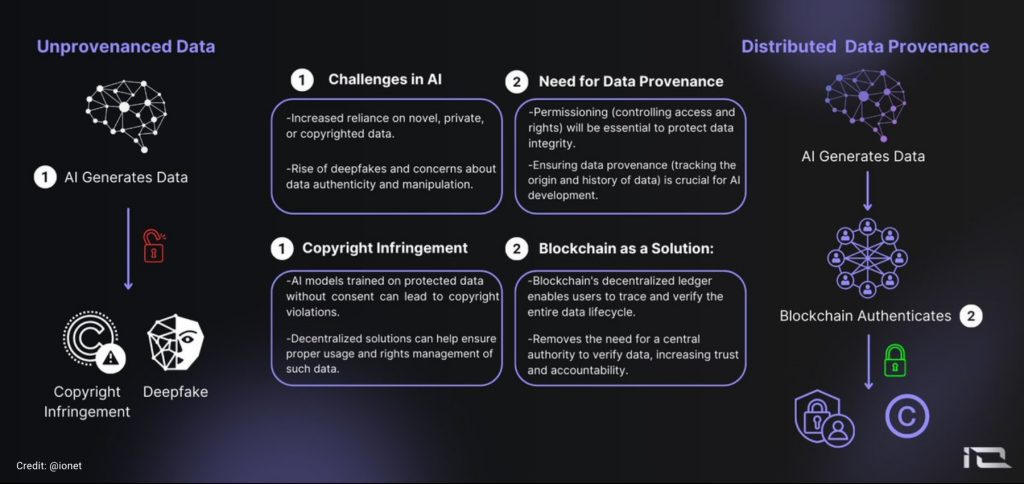
Blockchain technology is creating new opportunities for smaller companies to compete in the development space through decentralized AI, specifically Machine Learning Operations (MLOps) to reduce reliance on big tech resources.
AI, in this way, has quickly become a force worthy of acknowledgment as it shapes industries globally, yet one thing is standing in its way: its development demands massive resources, and this includes capital, computing power, and most importantly specialized talent that is current in the process of being built.
Said challenges are making it difficult for smaller and medium enterprises (SMEs) to compete with well-funded companies already dominating the AI space. Yet, one savior emerges to the scene, blockchain technology, bringing with it a new form of decentralization, AI decentralization.
1. Decentralized AI MLOps Leveling the Playfield
MLOps are largely controlled by the tech sector’s leading companies that manage every aspect internally, from data gathering right to model deployment.
This “one-stop-shop” game consolidates talent and resources, making it very challenging for SMEs to compete with the champions’ league. But now comes blockchain-powered decentralized MLOps, using token incentives, distributed networks, and custom-designed architecture may unlock a more collaborative and inclusive version of AI development.
Examples of this are projects such as CrunchDao and Codigo, which pretty much illustrate how decentralized talent networks are going to reshape AI in their way. These platforms let AI talent compete or collaborate on solving a particular problem, allowing even niche expertise to thrive. That opens doors for smaller companies that can’t afford to directly hire the best, but they can from decentralized AI system development.

2. Decentralization Overcomes Hardware Barriers
Of the many challenges in decentralized AI projects development, one such is access to high-powered GPUs like Nvidia A100s. These are needed for training big models and are, largely, rather expensive resources monopolized by cloud providers such as AWS, further reducing the instances to even fewer players. This may be an area where decentralized networks on the blockchain can be a potential solution, whereby people monetize their idling GPUs, decrease the overall costs, and democratize access to hardware resources.

3. Data Integrity Guaranteed through Blockchain
Data provenance and prevention of misuse become ever more crucial, as many AI models start depending on novel or private data. The decentralized and transparent nature of blockchain brings an added layer of verification of authenticity from data collection into its lifecycle to deployment. This becomes critical when the threat of deepfakes and copyright infringement is growing.
Decentralized AI solutions for provenance allow AI developers to make sure data is utilized in an ethical and legal manner, fostering trust and accountability in the data that AI models rely on. As AI continues to creep deeper into the fabric of everyday life, these methods will go a long way in maintaining the integrity of the data feeding the models.

A Decentralized Future for AI Development
What a remarkable pathway this is in which the convergence of AI and blockchain technologies can eventually offer a more decentralized AI crypto and inclusive AI ecosystem. Blockchain has torn down barriers to AI development with distributed MLOps, hardware solutions, and data provenance that enable smaller companies and diverse talent to share in the growth of the field. The future of decentra AI might be in many hands, not a few.
Inside Telecom provides you with an extensive list of content covering all aspects of the tech industry. Keep an eye on our Tech sections to stay informed and up-to-date with our daily articles.